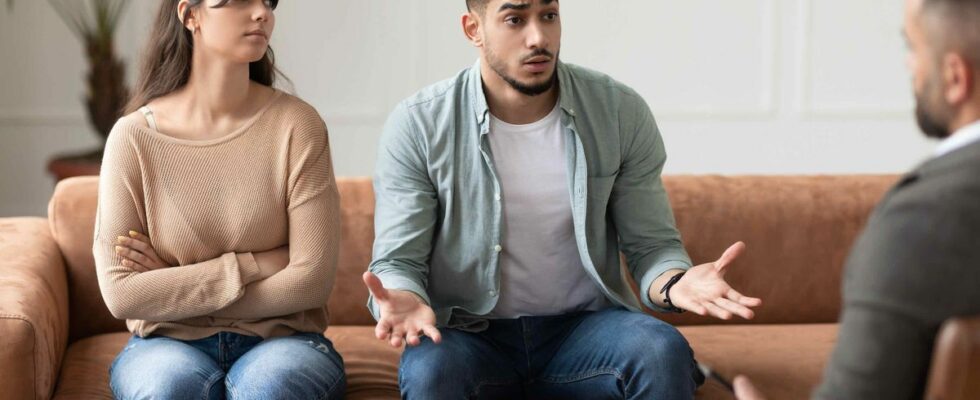Published on
Updated
Reading 2 min.
When tensions and difficulties arise in a relationship, it can be difficult to know how to act and who to turn to. However, seeking outside help may be necessary to regain a form of serenity.
While every couple knows full well how important it is to sort out any misunderstandings quickly, many people put blinders on and struggle to get their heads above water. According to Coopleo.carea networking platform dedicated to caring for marital and family relationships, almost one in two French people do not know who to turn to in the event of marital difficulties.
Taking care of your relationship: a daily job
For this survey, conducted among more than 1000 French people, 91% of those questioned declared that a good relationship “is not self-evident and it is important to maintain it“.
The couples also give themselves a score of 7.8/10 on their ability to work on this relationship.
The rating goes up to 8.1/10 when it comes to “take care of the couple on a daily basis” and drops to 7.4/10 when difficulties arise (in particular their ability to talk about them in a calm manner).
This reflects a certain confidence among couples in their skills to maintain a healthy and fulfilling relationship, while recognizing the importance of continued effort to achieve this.
Get help, yes, but from whom?
According to the press release, only almost half of the French people surveyed (56%) say they ask someone for help when tensions arise.
“Among these attentive ears, 54% mention people from their family circle, 53% people from their circle of friends, 15% health professionals, 6% professionals dedicated to couples (counselor, therapistmediator), and 5% of people offering spiritual or religious support (priests, marabouts)“, the survey reveals.
An outside person can allow each partner to confide and express their concerns in a constructive manner. This is all the more true when this help is not emotionally involved and can offer an impartial and objective opinion on the couple’s problems.
Only 6% of French people spontaneously think about going to see a professional
Two other findings were also made during this investigation:
- “44% of French people do not know who to turn to in the event of difficulties in their relationship. And only 6% of those questioned spontaneously think of going to see a relationship professional in the event of difficulties”, thus reveals the press release.
- For many, consulting friends or family is the “easy” solution to resolving marital difficulties. However, not all advice is good to take.
For Pascal Corpet, co-founder and in training in marriage counseling“we can expect empathy and listening from friends and family, but their lack of neutrality and the fact that they are not trained do not make them trusted references for moving forward in difficulties”, he concludes.

